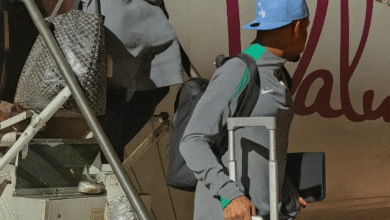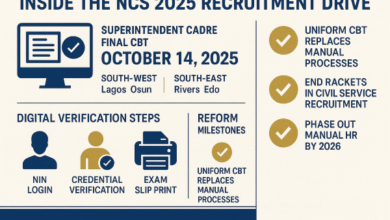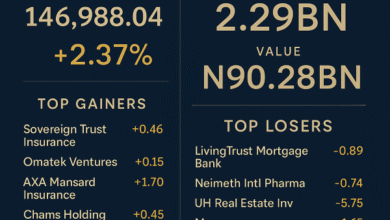Stock Market Posts Lowest Trading Activities Since 2008
 Transactions on the Nigerian Stock Exchange, NSE, for year 2016 have recorded worst trading sessions seen since 2008, when recession rocked the world economy.
Transactions on the Nigerian Stock Exchange, NSE, for year 2016 have recorded worst trading sessions seen since 2008, when recession rocked the world economy.
The stock market benchmark index was on a negative since the beginning of 2016 , which so far recorded N1.764 trillion loss in 10 days of trading.
This is the first time in the last eight years that the Nigerian market is making attempt to break the long-drawn recession that has seen investors lose a cumulative N8 trillion since March 2008.
The current trend in the market is going in the same direction of 2008/2009 when market capitalization of quoted companies, which had peaked at a record high of N12.6 trillion in March 2008, nosedived to N6.96 trillion by December 31, 2008 and dropped further to N4.48 trillion in March 2009.
Trading during the first week of the year had declined by N555 billion dropped further last week with N1.209 trillion. The NSE All Share Index and market capitalisation of quoted companies, which had started this year at 28,642.25 points and N9.851 trillion, ended last week at 23,514.04 points and N8.087 trillion respectively.
The market situation on the exchange also indicates broad market sadness with loses spread across all sectors. The NSE-30 Index, which serves as gauge for the market’s 30 most capitalised companies, recorded a loss of 18.85 per cent.
The petroleum-marketing sector index carried a negative return of 6.44 per cent while banking and food and consumer goods sub-sectors declined by 22.66 per cent and 18.06 per cent respectively. The insurance and industry sub-sector also remained an underperformer with a decline of 5.20 per cent and 15.66 per cent respectively.
The NSE Lotus Islamic Index which tracks Islamic compliance stocks slumped by 13.22 per cent, while pension index compliance stock and Alternative Securities Market Index dropped 19.07 per cent and 0.34 per cent correspondingly.
Consequently, premium board and main board index plunged by 23.57 per cent and 14.75 per cent respectively.











